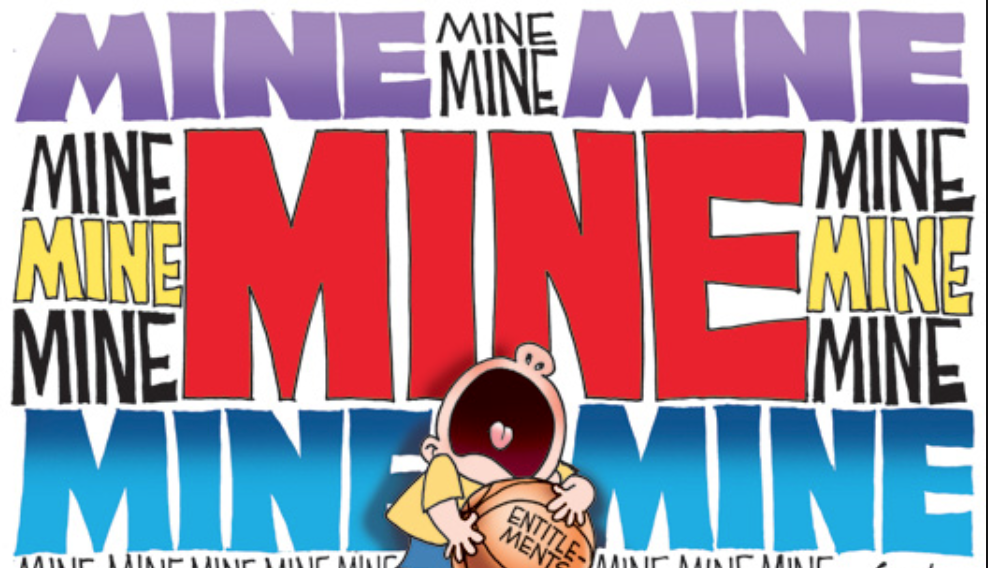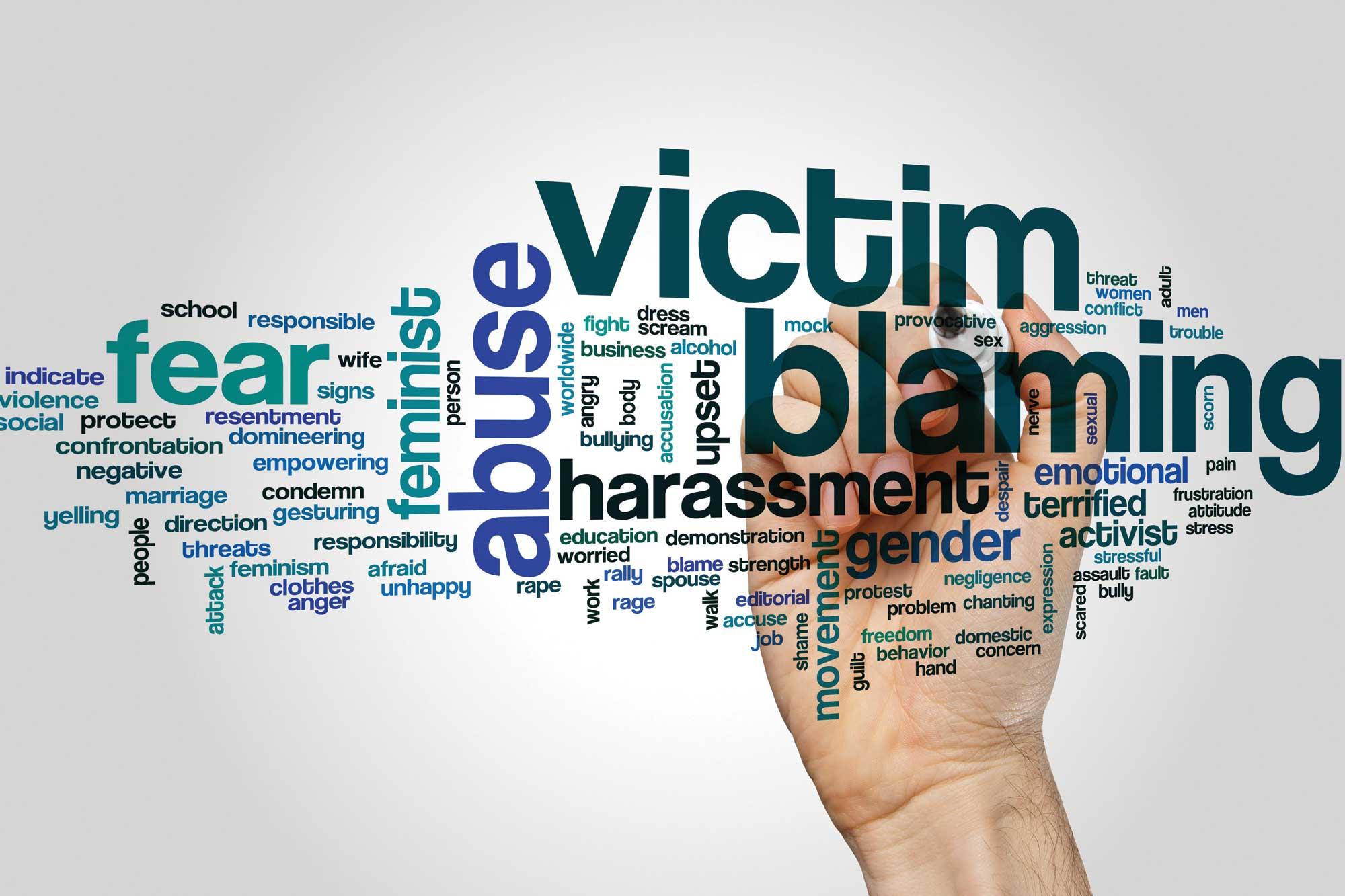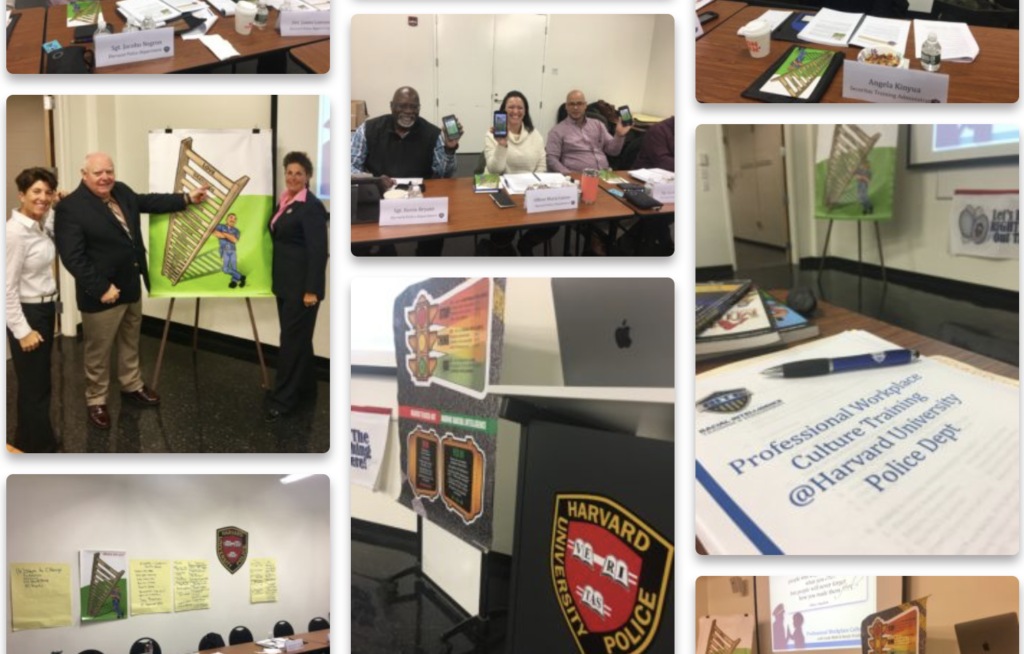The Entitlement Attitude
Ever work with employees who walk around the department angry, disrespectful of others, and carry the entitlement attitude?

The angry, disrespectful, entitled employee can make your department culture difficult for your good employees to be their best. When these issues go unaddressed in a timely manner, workplace harassment develops.
“Continuous display of negative entitled actions by one employee, can turn into a form of harassment. EI is likely lacking.” ~Linda Webb
Police culture and departmental accountability relies on the training you give all sworn and nonsworn, on the various types of workplace harassment. RITE training encourages self-improvement through Emotional Intelligence (EI) awareness, while discouraging harassment of any kind.
A professional work culture is where everyone is valued, respected, and treated bias-free. Promoting zero-tolerance for workplace harassment starts here.
7 Types of Work Place Harassment in Police Culture
All workplace harassment is discriminatory in nature. But, unlike verbal or physical harassment, discriminatory harassment is defined by its intentions instead of how it’s carried out. Share these with your staff as a reminder that workplace harassment is not accepted or tolerated.
- Racial Harassment
A victim may experience racial harassment because of race, skin color, ancestry, origin country or citizenship. Even perceived attributes of a certain ethnicity (curly hair, accents, customs, beliefs or clothing) may be the cause. Racial harassment often looks like:
- Racial slurs, insults and/or jokes
- Degrading Comments
- A Show of Disgust
- Intolerance of one’s differences
- Gender Harassment
Gender-based harassment is discriminatory behavior towards a person based on their gender
- Highlighting how one’s gender is better at a particular job than another
- Having one specific gender predominately or solely on a police specialty team
- No gender diversification allowed on specialty teams
- Religious Harassment
An individual with a religion that differs from the “norm” of the surrounding area may face workplace harassment or intolerance in a variety of ways:
- Intolerance toward religious holidays, traditions, and/or customs
- Cruel religious jokes
- Degrading stereotypical jokes
- Pressure to convert to a certain religion
- Personal Harassment
Personal harassment is when you target someone within your organization simply because of their own particular mannerisms, and this is considered a form of bullying. Examples of Personal Harassment
- Inappropriate comments
- Offensive jokes
- Personal humiliation
- Critical remarks specific only to that person
- Ostracizing behaviors (ie: mimicking someone who stutters)
- Intimidation Tactics
In policing, we can be quick to place ‘labels’ or ‘nicknames’ on a person, typically due to one specific event, or series of events. Often this nickname can stay with that person throughout their career. This can be extremely destructive and could even lead to suicide.
- Power Harassment
The harasser exercises their power by bullying someone lower in the chain of command order. Often, the harasser is a supervisor victimizing their subordinates. Examples of Power Harassment
- Excessive demands that are impossible to meet
- Humiliating demands far below the employee’s capability
- Intrusion into the employee’s personal life
- Psychological Harassment
Victims of psychological harassment are put down and belittled on a personal level, a professional level or both. The damage to a victim’s psychological well-being often creates a domino effect, impacting their physical health, social life and work life. Examples of Psychological Harassment:
- Isolating or denying the victim’s presence
- Belittling and trivializing the victim’s thoughts
- Discrediting and spreading rumors about the victim
- Opposing or challenging everything the victim says
- Sexual harassment
Sexual Harassment in a workplace, or other professional or social situation, involving the making of unwanted sexual advances or obscene remarks.
Examples of Sexual Harassment:
- Sharing sexual photos (pornography)
- Posting sexual posters
- Sexual comments, jokes, questions
- Inappropriate sexual touching
- Inappropriate sexual gestures
- Invading personal space in a sexual way
There’s an enhanced awareness of workplace harassment in social media, along with the #MeToo movement. If your agency has not had in-personworkplace harassment training within the last 4 years, it’s time to reinforce these policies.
Raising your agencies culture by reinforcing the professional standards and expectations of your employees is critical, while having a zero tolerance for workplace harassment.
Reduce Workplace Harassment
Workplace Harassment training strengthens your departmental culture, while reducing liability. RITE workplace harassment training includes the understanding of Emotional Intelligence and how your own behavior can affect others. We address the importance of controlling your own behavior first, prior to engaging with others.
“Positive department culture starts with each person, from top to bottom. RITE Harassment Training strengthens your workplace culture, making it a safe environment for all.” ~ Randy Friedman
 RITE Harassment Training for LE
RITE Harassment Training for LE
Remember, all workplace harassment is discriminatory in nature. RITE’S class helps to improve communication, reduce any bias-based policing, sexual harassment, and inappropriate behavior of any kind.
Reinforcing to your command staff that the department culture is to treat others fairly as they wish to be treated. Start 2019 in the right direction by strengthening a respectful workplace culture. RITE Academy, LLC is currently booking calendar dates for 2019. Contact us for more information



